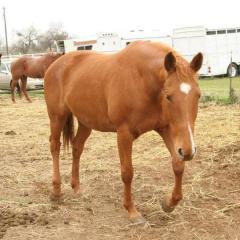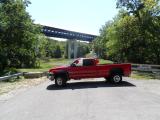Leaderboard
-
in all areas
- All areas
- Marker
- Events
- Event Comments
- Files
- File Comments
- File Reviews
- Images
- Image Comments
- Image Reviews
- Albums
- Album Comments
- Album Reviews
- Blog Entries
- Blog Comments
- Topics
- Posts
- Cummins Articles
- Cummins Article Comments
- Cummins Article Reviews
- Vendors
- Vendor Comments
- Vendor Reviews
- Ads
- Ad Comments
- Ad Reviews
- Policies
- Policy Comments
-
Custom Date
-
All time
December 14 2009 - July 22 2025
-
Year
July 22 2024 - July 22 2025
-
Month
June 22 2025 - July 22 2025
-
Week
July 15 2025 - July 22 2025
-
Today
July 22 2025
-
Custom Date
03/05/2013 - 03/05/2013
-
All time
-


Rogan
Retired Staff2Points2,351Posts
Popular Content
Showing content with the highest reputation on 03/05/2013 in all areas
-
What tires and sizes for a 2002 2wd 2500 Ram?
1 point
-
PCM difference between 96 and 97??
According to my Dodge Ram Registry I have which lists all changes from every model year, 95 was the last year of the RH trans. In 96 they bumped horsepower ratings up to 180 HP and went to the RE trans. Logically thinking, the plug would have to be different because one is electronically controlled and one is not, but I dont have anything to confirm that...1 point
-
Got my gauges in and swapped on the HX35 couple questions
Huh, those pictures look very, very familiar. :lol:That was me that made that mistake years ago.1 point
-
Towing Mirrors
1 pointDave, Unfortunately, you'll be pretty lucky to find them in a junk/salvage yard, just because they're sought-after. I've been looking in salvage yards around here for about 9 months, and haven't seen a single tow mirror yet..1 point
-
Towing Mirrors
1 pointMine came from here, had the mounting brackets and all. http://www.discountautomirrors.com/catalog/?N=1607+10105+4294963742&Nr=AND(part:Mirror,brand:Kool%20Vue)&Ns=price3%7C01 point
-
Towing Mirrors
1 pointI just ordered a set from www.rockauto.com. They haven't gotten here yet so I don't have a testimony to share but the price was very reasonable compared to OEM mirrors. I'll let you know how they work when I get them in!1 point
-
PO122 code
1 pointRyan,Its built up pretty well but there are still some good truck places over here, most of them near the Deer Valley Airport.Just made it back home, did 850 miles in two days (not to mention loading a 20 foot Penske truck helping a friend move) and made it back home just 30 minutes ago. No issues with the truck at all!Thanks for the help everyone!FT1 point
-
rebuilding NV 4500
1 pointTry to keep it under 250 at max. 250 is already very hot but other than breaking down the oil faster you are not doing tranny damage yet anything over that for any lenth of time starts to make things go bad.1 point
-
Steering Wander?
1 pointDate: Aug 15, 1997 Models: 1994-1998 BR Ram Truck NOTE: This adjustments in this bulletin can be used on later models up through 2001. Symptom/Condition: Vehicle operators may complain that when driving on a straight road, a higher than normal steering wheel movement (perceived as excessive play) is required to keep the vehicle going straight or may describe of having to over compensating the steering to keep the vehicle from wandering. NOTE: THIS SYMPTOM SHOULD NOT BE CONFUSED WITH VEHICLE WANDERING DUE TO SLOW OR POOR STEERING RETURNABILITY. Diagnosis: 1. Drive the vehicle on a smooth straight road to verify that the vehicle does require higher than average amount of steering wheel movement to be able to keep the vehicle from wandering. 2. If the vehicle responds to normal steering wheel input (steering wheel can be held steady to keep the vehicle going straight), however the vehicle still drifts/wanders, see Technical Service Bulletin 05-03-97, dated March 17, 1997 for information regarding Chassis Dynamics Diagnosis. NOTE: IT IS IMPORTANT TO THOROUGHLY PERFORM THE STEERING AND SUSPENSION INSPECTION PROCEDURE OF TECHNICAL SERVICE BULLETIN 05-03-97 FOR VEHICLES THAT EXHIBIT A DRIFT/WANDER BUT RESPOND TO NORMAL STEERING WHEEL INPUT. If a higher than normal steering wheel movement is required to keep the vehicle from wandering (vehicle slow to respond to normal steering wheel input), then perform the Over-Center Adjustment Repair Procedure. Parts: AR (1) 06504926AA Bolt, Intermediate Shaft, Pinch Repair Procedure: This bulletin involves performing the over-center and if necessary, the worm thrust bearing preload adjustments on the steering gear. OVER-CENTER ADJUSTMENT 1. Find the center of the steering gear travel by rotating the steering wheel completely to the left then, rotate the steering wheel to the right while counting the numbers of turns required to reach the end of travel. 2. Rotate the steering wheel to the left 1/2 the number of turns counted in the previous step. This position should be the center of the steering gear travel. 3. Loosen the locknut on the pitman shaft adjuster screw (Figure 1). Make sure the adjuster screw is held and does not turn with the locknut. 4. Turn the adjuster screw in approximately 1/8 of a turn. While holding the adjuster screw, tighten the adjuster screw locknut. 5. Road test the vehicle to determine if the over-center adjustment has corrected vehicle wander. If vehicle wander still occurs, repeat steps 1-5. NOTE: SOME IMPROVEMENT SHOULD BE SHOWN AFTER 1/8 TO 1/4 TURN. IF WANDER STILL OCCURS AFTER TURNING THE ADJUSTER SCREW UP TO 1/2 TURN, PROCEED TO THE BEARING PRELOAD ADJUSTMENT PROCEDURE. CAUTION: IF THE OVER-CENTER ADJUSTMENT SCREW IS TURNED TOO FAR, CUSTOMERS MAY COMPLAIN OF VEHICLE WANDERING DUE TO POOR STEERING RETURNABILITY AND/OR STICKY STEERING.1 point





